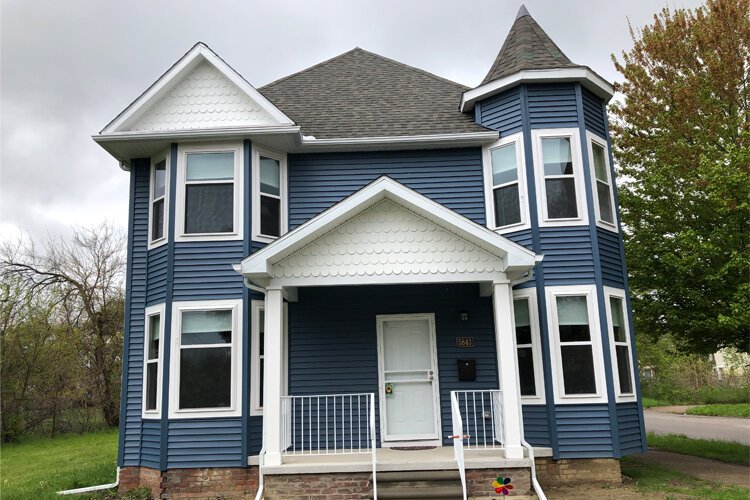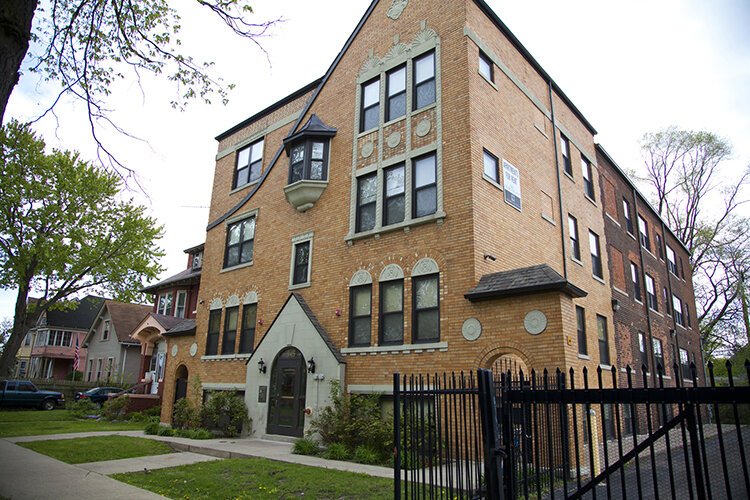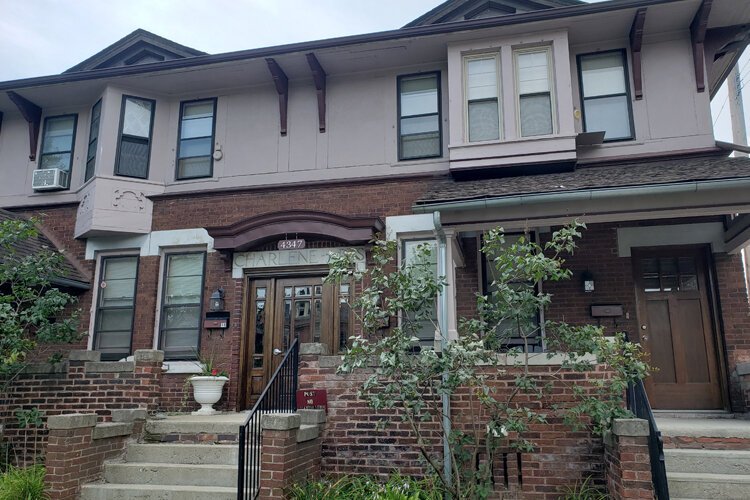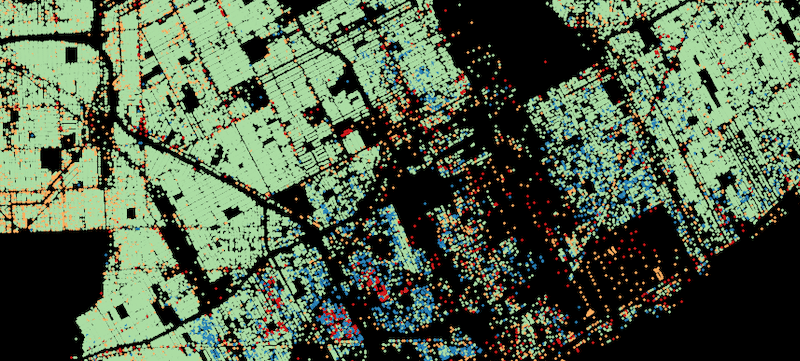Detroit nonprofit housing providers and landlords face uncertain future
A perfect storm of increasingly late rent, a series of eviction moratoriums, and a lack of options for financial relief in the wake of the pandemic has left the future uncertain for affordable housing providers and “mom and pop” landlords in Detroit.
In late March, as Detroit reeled from the onset of the COVID-19 pandemic and a series of executive orders issued by Gov. Gretchen Whitmer shuttered businesses and temporarily suspended evictions across the state, Tim Thorland found himself staring down the barrel of an unprecedented rent crisis.
“When things first jumped off and the original eviction moratoriums were put in place, certainly no landlord had experience with a condition like this. The projections for rent loss were pretty dire,” says Thorland, executive director of Southwest Housing Solutions, a nonprofit that specializes in the planning, development, and management of affordable housing and commercial property, including over 700 low-income residential units, in Southwest Detroit.
Pivoting quickly, the team at SWHS reached out to tenants in the organization’s 500 unsubsidized units, offering reduced rent in exchange for prepayment as state and federal unemployment benefits and stimulus checks were slowly distributed in April.
In spite of the initiative, the nonprofit suffered significant losses as tenants working in the service industry and other lower-wage jobs experienced reduced hours and lost wages.
“We lost approximately $150,000 in rent through that first period (from April to July). In comparison, our August delinquency right now is at $83,000. It’s a big jump,” Thorland says, adding that the excess unemployment benefits provided under the CARES Act, which expired on July 31, made a difference in tenants’ ability to pay.
Although Thorland says SWHS will recoup some of August’s losses as tenants make payments throughout the month, he doesn’t expect the numbers to improve dramatically any time soon — and he’s not alone.
Over the last six months, a perfect storm of increasingly late rent, a series of eviction moratoriums, and a lack of options for financial relief in the wake of the pandemic has left the future uncertain for many rental property owners, including nonprofits and the “mom and pop” landlords who own the largest share of rental properties in the U.S.
According to the National Multifamily Housing Council’s Rent Payment Tracker, rent payments have declined nationally over the last half-year, with 90% of apartment households making a full or partial rent payment by Sept. 20.
In Detroit, where there are more renters than homeowners, eviction is an ongoing threat even under normal circumstances. During the last week of August, the Census Bureau’s Household Pulse survey found that 38.6% of people living in Metro Detroit expected to face eviction or foreclosure within the next two months.
In an effort to stave off an impending wave of evictions and a potential homelessness crisis that could worsen the COVID-19 pandemic as eviction moratoriums expired across the country earlier this month, including an extended ban in Detroit, the Trump administration directed the Centers for Disease Control and Prevention to issue a sweeping federal order on Sept. 1, delaying evictions nationwide until Dec. 31.
Although the order helped prevent a potential housing crisis, it’s a short-term fix and the CDC’s order did not include any relief for landlords bearing the financial burdens of months of unpaid rent without much recourse.
To help ease some of the financial burden in Michigan, the Michigan Eviction Diversion Plan was created in July. Administered by the Michigan State Housing Development Authority through a network of nonprofit homeless service providers, the program earmarked $50 million to help participating landlords cover up to 90% of unpaid rent for eligible tenants earning up to 100% of area median income. A spokesperson from MSHDA estimates Detroit is spending about $300,000 to $400,000 per week and assisting about 150 clients weekly through the program.
While Thorland maintains that SWHS is dedicated to preventing homelessness and plans to continue working with tenants while applying for relief through the program, he’s worried that the significant financial losses incurred as a result of the pandemic could deter funders from investing in future affordable housing initiatives.
“We could easily lose, by the end of the year, well over a quarter-million dollars just in lost rent,” Thorland says. “That’s a huge number for us.”
‘A lot of need’
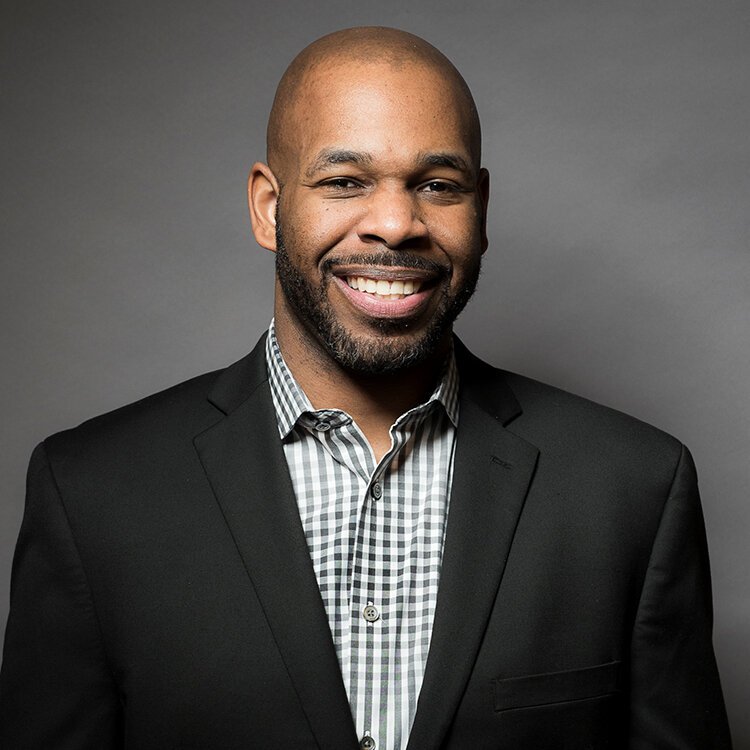
Southwest Housing Solutions isn’t the only nonprofit in the city experiencing financial stress due to unpaid rent. Other organizations, like the Detroit Catholic Pastoral Alliance, a faith-based nonprofit that operates four low-income housing developments in the city including some mixed commercial spaces, have also experienced losses.
Although many of DCPA’s tenants have managed to stay current on rent due to participation in project-based voucher programs, the nonprofit expects to forgive around $11,000 worth of rent this year.
“It’s a huge impact on the budget,” says executive director John Thorne, adding that the organization is in the beginning stages of applying for the Eviction Diversion Program to help offset some of those losses.
As an organization that strives to offer low-income renters a “second chance,” Thorne says DCPA doesn’t always look at the same criteria many property management companies do to approve renters. Still, he’s concerned about the impact evictions could have on the city’s renters when the moratorium is eventually lifted.
“A lot of times, when people aren’t able to pay rent, it affects them negatively as they go to look for another place,” Thorne says. “And then we get into the whole loop of people who are caught in a system that just isn’t working for them.”
He adds, “There’s a call for rent forgiveness, and it’s a wonderful idea in theory. But unless the government or state will step in to help these landlords, it’s not a real reality.”

Between Feb. 3 and March 13, his organization identified 2,600 judgments and around 550 orders of eviction in the city of Detroit. Although Phillips says the Eviction Diversion Program’s provisions exceed previous initiatives, he thinks it’s unlikely the program will cover all of the rent owed across the state.
“They’re definitely going to fall short. There’s no way it’s nearly enough to cover everybody …” Phillips says. “It’s a lot of money, but there’s a lot of need.”
‘Delaying the inevitable’
From a legal perspective, Joseph Doerr, a Bloomfield Hills attorney who specializes in landlord-tenant disputes, “agrees with the spirit of the [CDC] order,” but cautions that it may be more of a Band-Aid than a cure.
“It may be delaying the problem instead of actually solving it …” Doerr says, explaining that tenants are still responsible for unpaid rent and late fees under the CDC order. “With the exception of the state Eviction Diversion Program, even if you buy yourself some time, you might be delaying the inevitable. At some point, you may be responsible for a lot of rent.”
Doerr also cautions that the CDC order may be followed differently in different parts of the state after a recent memorandum issued by the Michigan Supreme Court left its interpretation up to the judicial discretion of lower courts, potentially creating confusion for landlords.
“Certain districts may interpret it differently, so we might see different municipalities interpreting it differently,” Doerr says. “They’re going to have to make a judgment call.”
In addition to those challenges, Doerr says he has concerns about the potential for an overburdened court system once the eviction moratorium is lifted due to a flood of cases.

“I’m just scratching my head about what the courts are going to look like in January, assuming [the CDC order] is not extended …” he says. “Hopefully between now and the end of the year, Congress will put something together that not only prevents evictions and not only delays the problem, but potentially solves it.”
To expedite solutions and prevent potentially long delays when the moratorium is lifted, Doerr advises that landlords and tenants work together outside of the court system.
“If there’s any way you can work with the landlord to try to come up with some type of resolution, that would be, I think, a good approach,” he says.
Patience amid uncertainty
Some small landlords, like Deb Sumner and her husband, Steve, have already found creative ways to work with tenants whose income was affected by the pandemic.
After their newest renter, who moved into one of the two units in the 1920s duplex behind their Hubbard Farms home in August, was laid off from his restaurant job due to the pandemic, Sumner worked out a deal.
“I’m being creative and I’m utilizing [him] to help me out around my property and the house, doing things he can do and literally paying him but taking it off the rent,” Sumner says. “He’s very conscientious and he’s interested in working, so it worked out.”
For Cheryl and Otto Cureton, who own and manage a four-family rental home and a 15-unit apartment building in Woodbridge, concerns are centered on ways the recession could change the needs of renters in the future.
“One-bedrooms are something that [renters] would like now,” Otto says, adding that all of their units are one-bedroom apartments. “But all of a sudden, two-bedrooms could become more what they want because they’ll have to move in with folks, which would hurt my business.”

For other landlords, like Will Arabi, a private real estate investor who owns rental properties in the Bagley, Crary/St. Mary’s, and Grandmont neighborhoods, the repercussions of the pandemic have been more severe.
Arabi says he’s experienced issues with late rent at each of his properties. Nine tenants have fallen between two and three months behind on their $750 monthly rent, amounting to a cumulative loss of $12,590 at press time.
After directing tenants to the Wayne Metro CARES Relief and Recovery Services program early on, he says two moved without notice during the application process. The unexpected vacancies created additional indirect losses due to the challenges of finding new renters and contract laborers for cleaning and repairs amid a pandemic.
In spite of those losses, Arabi understands the pandemic has had an adverse effect on landlords and renters alike, and he says he’s working to maintain an open line of communication with his tenants while directing them to the Eviction Diversion Program and waiting to see if more state and federal relief will become available.
“We have no other option at this point but to remain patient with one another as human beings, because this is outside of everyone’s control,” Arabi says.
